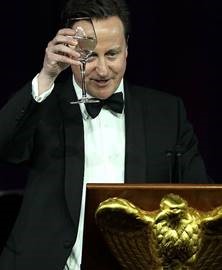
Following the announcement of Brexit, shock waves ran through the wine market too. Even if it is still too early to forecast with any accuracy what its medium or long term effects will be, we are already able to broadly outline how Brexit will impact on wine trading between the United Kingdom and Europe.
The United Kingdom has always held a dominant position in the wine market, a position maintained in particular by the strengthen of leading merchants and long-established brokers who are able to call the shots when it comes to prices for fine wines from Europe and from France in particular. Between 1995 and 2006, consumption increased in the UK by over 65%, ranking it as 6th country in terms of volume. Many other records make this market a place to be for European producers. For example, England is Champagne’s prime export market and even the prime one for Italian wines. In terms of value France remains the leading supplier with 1/3 of the market!
When it was announced last Friday that 51.9% had voted in favour of Brexit this sent a real shock wave through the English wine trade, staunch defenders of the Remain campaign. Like most of the population and the pollsters, they had never imagined that leaving the European Union might actually become a reality. According to Decanter magazine, almost 100% of WSTA members (Wine and Spirit Trade Association) were against Brexit. A very logical standpoint given how international the profession is and the far-reaching repercussions for the wine market of Britain leaving Europe.
Of course the immediate effect was that the value of the pound fell sharply, reaching all-time lows: its lowest level for over 30 years against the dollar and for 2 years against the euro. It is difficult to predict whether these levels are going to persist, however, certain signals do not favour a possible turnaround such as Standard and Poor stripping the UK of its triple A rating. Today analysts seem to be agreed that it will be between 5% and 10% more expensive for the English to buy European wine this year, solely taking into account the currency impact. Despite a series of hard-hitting anti-drink campaigns and constant increases in taxes and excise duties, which now amount to almost €2.5 per bottle, consumption has managed to hold steady. Given this background, will the market be willing to swallow another price increase due to exchange rates?
In contrast to the trend observed over recent years of a regular increase in the average value of wines bought, the result could be a trade down, with consumption moving towards more accessible wines.
Then there is the fear that with Brexit tariffs may be imposed on wine. However, it looks as if it is in nobody’s interest to revert to the past: neither for the European producers who hold on to the strength of English trade to serve the domestic market and international trading, nor for the merchants who need to get hold of goods easily and at sensible prices. Quite determined to fight its corner, the WSTA has just issued a press release confirming its support for free-exchange in the negotiations with the European continent.
Brexit is not the first crisis that the English have had to contend with. Whether it be wars, blockades, revolutions and so on, nothing seems to have quenched their thirst for fine wines. During the Second World War, Churchill clearly showed his resolve: “Remember gentlemen, it’s not just France we are fighting for, it’s Champagne…” So let’s remain confident about the outcome of Brexit with regard to wine trading.
As for iDealwine, after opening an office in Paris in 2000 and then in Hong Kong in 2013, we opened one in London in 2014. In 2015 we doubled our turnover, and since the start of this year we’ve doubled it again to achieve €500,000 over the first six months. For the most part our customers are merchants, but they also include a few English and expatriate collectors. Even if we are revising our market forecasts downwards, we’re remaining optimistic. Our most recent dealings with our customers on this matter have buoyed our confidence. With iDealwine they are getting a unique model, a rare diversity of wines and prices which remain attractive despite the slightly less favourable exchange rate.
Furthermore, the pound falling could have a very positive result for iDealwine’s sourcing. England has an abundance of far-sighted collectors and enthusiasts who might be interested in the security, ease and rapidity that our platform offers for selling wine. The effect of currency movements can only further strengthen this perception!
When confronted with macroeconomic developments, the market for fine wines remains relatively resilient. The iDealwine indices, which tracks movements in fine wine prices at auctions compared with the CAC40 exemplifies how both are independent. On the other hand, a wait and see situation might well arise with vendors holding onto their wine and buyers waiting for the market to settle before they get involved in it again. We are watching developments very closely as we monitor prices and indices which will help us to work out trends over the coming weeks.
As I’ve unfortunately witnessed again over the past few months, the global warming that would be required to improve the quality and quantity of wine produced on this side of the Channel doesn’t seem to be happening … the sun still shines more brightly in the other wine-producing areas of Europe… so let’s remain optimistic, as it’s certainly not the English production that are going to satisfy the thirst of the English for fine wines. So here’s a phrase for you to keep in mind: Keep calm & carry on iDealwine!
Read further on iDealwine Le Blog
- Auction Report 25th May: Top Alsace & Rhône: La Chapelle 1961
- Auction Report 17th May: Daguenau grabs headline
- Auction Report 27th April: 1966 vintage and Yquem
- Auction Report 13th April: stagnant Bordeaux & Burgundy
Register here to access auctions and fixed-price sales
See all wines currently on sale



